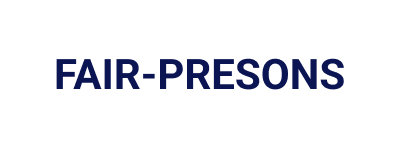
ARISA Child
Assessing the Risk of Isolation of Sentenced and Accused: Enhancing the Capacity of Correctional Services to Work with Convicted Children
European Arrest Warrant
Portfolio
Follow
Timeframe
03/2019 – 03/2021 (24 months)
Get in touch

The AWARE EAW project aims at increasing the cross-border cooperation between EU Member States using two Framework Decisions (FDs) in particular: 2002/584/JHA on the European arrest warrant and the surrender procedures between Member States and 2008/909/JHA on the application of the principle of mutual recognition to judgments in criminal matters imposing custodial sentences or measures involving deprivation of liberty for the purpose of their enforcement in the European Union.

Transfer knowledge between the European Union Member States' legal practitioners responsible for extradition, and jointly explore best practice in and sustainable development of cross-border cooperation in the application of the European Arrest Warrant (EAW), whilst respecting the protection of fundamental rights.
Analyse the partners’ prison and legal protection systems, with findings providing a baseline for the development of standards which lead to a standardised procedure for the provision of information by the issuing Member State according to each individual case, contextualised in referral to international standards.
Improved capacity and understanding that will harmonise the way the European Arrest Warrants (EAWs) are implemented at both administrative and judicial level.
Enhanced knowledge of the implementation of EAWs, including the exchange of theory and practice between peers and agencies.
Case studies, transferable working methods, recommendations and EAW Procedural Assessment Tool will be used to positively influence European and national policy and practice.
Development of online and offline tools and a learning network which builds mutual understanding of minimum European standards.
Seminars and information tools to support learning between judges and prosecutors, their counterparts in prison and probation, and their peers in their national organisations.

Assessing the Risk of Isolation of Sentenced and Accused: Enhancing the Capacity of Correctional Services to Work with Convicted Children

Promoting fundamental rights in (post) pandemic times in cross-border proceedings

Fair predictions of gender-sensitive recidivism

Implementation of the Stockholm’s Roadmap in cases of terrorism and radicalisation

Judicial cooperation for the enhancement of mutual recognition regarding probation measures and alternative sanctions

Multi-Ideological Radicalisation Assessment towards Disengagement

Promoting Universal Jurisdiction while Evoking the Crimes Committed within the Former Yugoslavia

Assessing the impact and performance of preventive measures on EU Directives and Framework Decisions

Alternative pre-trial detention measures: Judicial awareness and cooperation towards the realisation of common standards